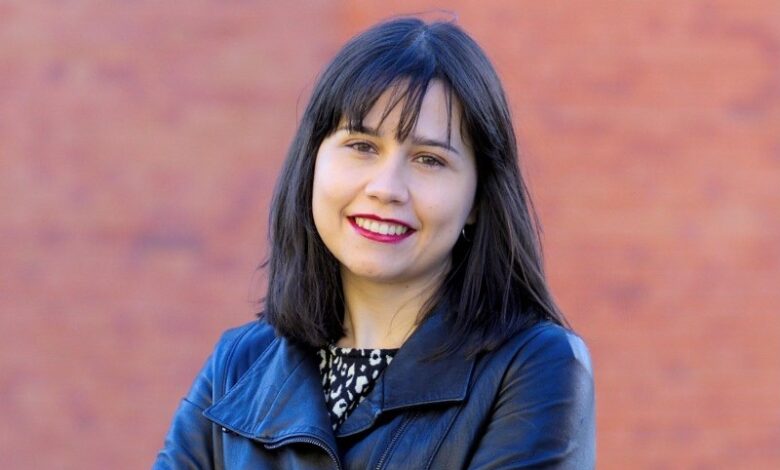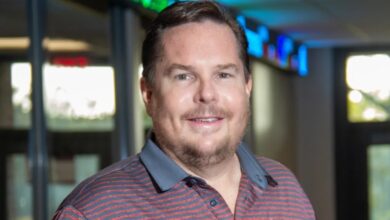Maria Garcia: A Trailblazer in Mathematics and Engineering Research

Maria Garcia is a name that resonates with excellence in the fields of mathematics, telecommunication engineering, and advanced scientific research. Renowned for her contributions to radar systems, computational imaging, and remote sensing, Maria Garcia stands out as a leading figure who combines deep mathematical knowledge with practical engineering expertise. Her journey from the University of Oviedo to becoming an MSCA Research Fellow at Queen’s University Belfast showcases her relentless pursuit of innovation and academic excellence.
Early Academic Foundations: Mathematics and Engineering
Maria Garcia’s academic journey began with a strong foundation in telecommunication technologies and services engineering, which she studied at the University of Oviedo. Demonstrating exceptional aptitude, she earned her bachelor’s degree in this field, followed by a master’s degree in telecommunication engineering from the same institution. Her passion for mathematics was equally strong, leading her to pursue and obtain a bachelor’s degree in mathematics from the National University of Education at Distance (UNED) in 2023.
This blend of rigorous mathematical theory and practical engineering training laid the groundwork for her interdisciplinary research that leverages mathematical tools to solve complex engineering challenges.
Professional Milestones and Research Experience
Researcher at the University of Oviedo
From 2016 to 2022, Maria Garcia was deeply involved in research at the University of Oviedo. Her work spanned various aspects of telecommunications and applied mathematics. During this period, she also undertook research internships and visiting scholar roles at prestigious institutions worldwide, including Stanford University, Northeastern University, the German Aerospace Center (DLR), and TNO in the Netherlands.
These international experiences enriched her perspective and allowed her to engage in cutting-edge research and cross-disciplinary collaboration.
MSCA Research Fellow at Queen’s University Belfast
In January 2023, Maria Garcia embarked on a new chapter as a Marie Skłodowska-Curie Actions (MSCA) Research Fellow at Queen’s University Belfast. The MSCA fellowship is a highly competitive and prestigious program designed to foster innovation and excellence among researchers in Europe.
At Queen’s University, she focuses on advanced radar systems and computational imaging, particularly developing Synthetic Aperture Radar (SAR) technology for uncrewed aerial vehicles (UAVs). This work aims at detecting buried explosive threats, showcasing the real-world impact and societal relevance of her research.
Contributions to Mathematics and Engineering
Maria Garcia’s work is an exemplary blend of mathematics and engineering, where abstract theories meet practical applications. She applies advanced mathematical concepts, such as inverse scattering theory and signal processing, to improve radar imaging and remote sensing technologies.
Her expertise includes:
- Radar Systems: Designing and optimizing radar signals to enhance detection capabilities.
- Computational Imaging: Using mathematical algorithms to reconstruct images from radar data.
- Inverse Scattering: Employing mathematical techniques to interpret how waves scatter when they encounter objects.
- Remote Sensing: Applying mathematics to gather and analyze data about physical objects from a distance.
Through these areas, Maria has made significant contributions to the advancement of security technologies, particularly in threat detection and environmental monitoring.
Awards and Recognitions
Maria Garcia’s outstanding achievements have been recognized through numerous awards, underscoring her impact on science and engineering:
- Extraordinary PhD Award from the University of Oviedo.
- National Youth Award in Science and Technology, granted by the Spanish Ministry of Social Rights and 2030 Agenda.
- 4th Prize in the “MyGalileoDrone” Competition for her innovative 5GBeamCheck project.
- Best Thesis Award in the 2020 National Awards to Telecommunications Engineers.
- Best Student Paper Award at the 13th European Conference on Antennas and Propagation.
- IEEE Access Best Multimedia Contest Winner and multiple honorable mentions in IEEE competitions.
- Finalist and prize winner in several European scientific contests, including the Galileo Masters Awards.
These accolades highlight not only her scientific excellence but also her creative and entrepreneurial approach to research.
The Role of Mathematics in Maria Garcia’s Research
Mathematics forms the core of Maria Garcia’s scientific work. Her ability to integrate mathematical modelling, analysis, and computational techniques allows her to solve complex engineering problems effectively.
Mathematical Modeling and Analysis
Maria employs mathematical models to simulate the behaviour of radar waves and optimize signal processing. These models help predict how electromagnetic waves interact with various materials, which is crucial for applications such as subsurface imaging and threat detection.
Signal Processing
At the heart of radar technology is signal processing, which transforms raw data into meaningful information. Maria’s work leverages mathematical algorithms that filter noise enhance signal clarity and reconstruct detailed images from scattered wave data.
Inverse Problems and Computational Methods
Inverse scattering problems — reconstructing object properties from wave reflections — are mathematically challenging. Maria’s research develops and refines computational methods to accurately solve these problems, enabling improved imaging and sensing capabilities.
Impact and Future Directions
Maria Garcia’s research advances technologies with direct societal benefits, especially in security and safety, through enhanced detection of explosives and hazardous objects. Her innovative approaches in radar imaging also have applications in environmental monitoring, disaster management, and autonomous vehicle navigation.
As an MSCA Fellow, she continues to push the boundaries of knowledge by integrating cutting-edge mathematical theories with practical engineering solutions. Her work exemplifies how multidisciplinary research can lead to transformative innovations.
Also Read: Mike Wangle, The Honest and Ethical Leader Driving Success at Greenway Kia West Palm Beach
Conclusion
Maria Garcia embodies the intersection of mathematics and engineering with her dedicated pursuit of excellence and innovation. Her journey from a strong academic foundation to becoming an internationally recognized research fellow underscores the power of combining mathematical rigour with the applied sciences.
Through her groundbreaking work in radar systems, computational imaging, and remote sensing, Maria is not only advancing her field but also making a tangible difference in public safety and technology. Her story serves as an inspiration to aspiring mathematicians and engineers who aim to use science for a meaningful impact.



